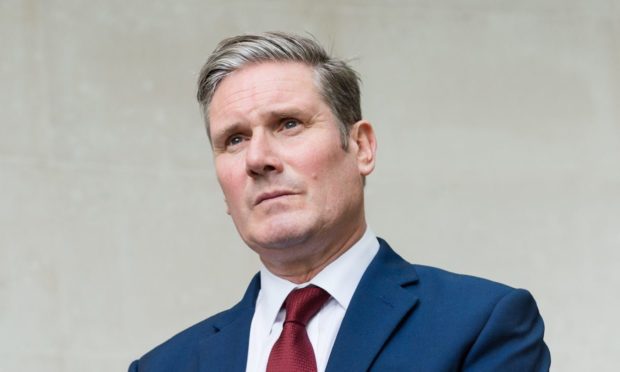Sir Keir Starmer is to commit Labour to delivering a new wave of devolution across the UK as he seeks to head off demands for Scottish independence.
In a keynote speech on Monday, he will say the party’s next manifesto will set out a programme to win power “in order to push as much power as possible away from Westminster”.
The Labour leader will say that he is offering “a positive alternative to the Scottish people” while at the same time seeking “to preserve and renew the United Kingdom”.
Aides said the speech – Sir Keir’s first on the subject of the Union – will set the tone for the party’s campaigning for next year’s elections to the Scottish Parliament as well as more broadly across the UK.
Labour has not held power in Holyrood since 2007 while it has struggled to maintain a toehold in Westminster elections in Scotland after being all but wiped out by the SNP in the 2015 general election.
With support for independence on the rise, Sir Keir will argue that the shared “history, values and identity” of the peoples of the UK meant there should be no place for internal borders.
‘Determined to preserve and to renew the United Kingdom’
Instead, he will offer a vision of the four nations of the UK coming together to build a country that is a “force for social justice and moral good” in the world.
“I don’t believe in putting up borders across any part of our United Kingdom, in dividing people, communities and families who have stood together for so long,” he will say, according to advance extracts of his speech.
“I believe in that core Labour principle that we achieve more together than we do alone.
“All four nations working together to build a more open, more optimistic and outward-looking country. A United Kingdom that’s a force for social justice and a moral force for good in the world.
“That’s why I’m so determined to preserve and to renew the United Kingdom.”
He will say that he wants devolution, decentralising power from Westminster, to be one of the hallmarks of the next Labour government.
“I may be the first person ever to run to be prime minister of this country on a manifesto that will aim to win power and then push as much of that power as possible away from Westminster,” he will say.
“Because there’s a yearning across the United Kingdom for politics and power to be much closer to people.”
